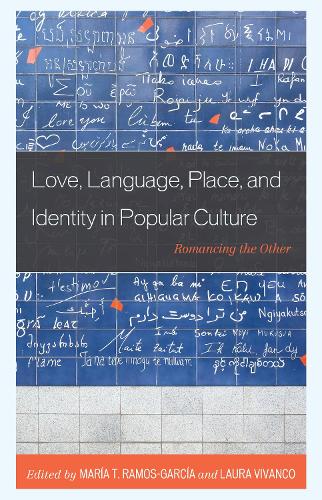
Love, Language, Place, and Identity in Popular Culture: Romancing the Other
(Paperback)
Available Formats
Publishing Details
Love, Language, Place, and Identity in Popular Culture: Romancing the Other
By (Author) Mara Ramos-Garca
Edited by Laura Vivanco
Contributions by Aline Maria Pinguinha Frana Bazenga
Contributions by Mara Isabel Gonzlez-Cruz
Contributions by Johanna Hoorenman
Contributions by Maureen Mulligan
Contributions by Inmaculada Prez-Casal
Contributions by Mara del Mar Prez-Gil
Contributions by Mara Ramos-Garca
Contributions by Ramn E. Soto-Crespo
Bloomsbury Publishing PLC
Lexington Books
10th May 2022
United States
Classifications
Professional and Scholarly
Non Fiction
Popular culture
306.4
Physical Properties
Paperback
176
Width 154mm, Height 220mm, Spine 13mm
268g
Description
Love, Language, Place, and Identity in Popular Culture: Romancing the Other explores the varied representations of Otherness in romance novels and other fiction with strong romantic plots. Contributors approaches range from sociolinguistics to cultural studies, and the texts analyzed are set on four continents, with particular emphasis on Caribbean and Atlantic islands. What all the essays have in common is the exploration of representations of the Other, be it in an inter-racial or inter-cultural relationship. Chapters are divided into two parts; the first examines place, travel, history, and language in 20th-century texts; while the second explores tensions and transformations in the depiction of Otherness, mainly in texts published in the early 21st century. This book reveals that even at the end of the 20th century, these texts display neocolonialist attitudes towards the Other. While more recent texts show noticeable changes in attitudes, these changes can often fall short, as stereotypes and prejudices are often still present, just below the surface, in popular novels. The understudied field of popular romance, in which the Other is frequently present as a love interest, proves to be a fruitful area in which to explore the potential and the realities of the treatment of Otherness in popular culture. Scholars of literature, communication, romance, and rhetoric will find this book particularly useful.
Reviews
Ramos-Garcia and Vivanco's collection investigates and challenges problematic, imperialist representations of non-Anglo Others in romance novels. Originating as papers presented at the First International Seminar on Languages and Cultures in Contact in the Romance Novel (Univ. of Las Palmas de Gran Canaria, 2017), the essays are divided into two parts: "Place, Travel, History and Language" looks at romance fiction before 1990, "Tensions and Transformations" at romance fiction after 1990. The essays in part 1 demonstrate how romance fiction promotes cultural and national supremacy; the ways whiteness serves as the implied standard for beauty, desirability, and relationships; and stereotypical and faulty attempts at portraying diverse, accurate, and sensitive characters and story lines. Those in part 2 consider who has access to publish romance novels, explore new and promising subgenres of romance (e.g., steampunk, paranormal), describe what might sufficiently constitute nuanced representations of difference, and assess whether there can ever be sensitive and politically neutral representations of romance. An important book for anyone interested in textual criticism, romance, and the significance of popular media. Summing Up: Recommended. Graduate students, researchers, faculty.
* Choice *An insightful and important intervention into discussions of diverse forms of Othering in romance novels. Essential reading for those interested in the formation and unraveling of racial, ethnic, class, and national identities in popular fiction, from the historical to the paranormal. -- Hsu-Ming Teo, Macquarie University
An engaging collection of essays that approach popular romance fiction from varied angles, such as linguistics and cultural studies, to examine constructions of Otherness in the genre.. A timely and much needed contribution to the field, particularly the chapters that include close readings of specific texts, including the often-overlooked category romances (Harlequin Mills and Boon). -- Jayashree Kamble, LaGuardia Community College CUNY
Author Bio
Mara Ramos-Garca is professor of Spanish at South Dakota State University.
Laura Vivanco holds a PhD from the University of St. Andrews.
